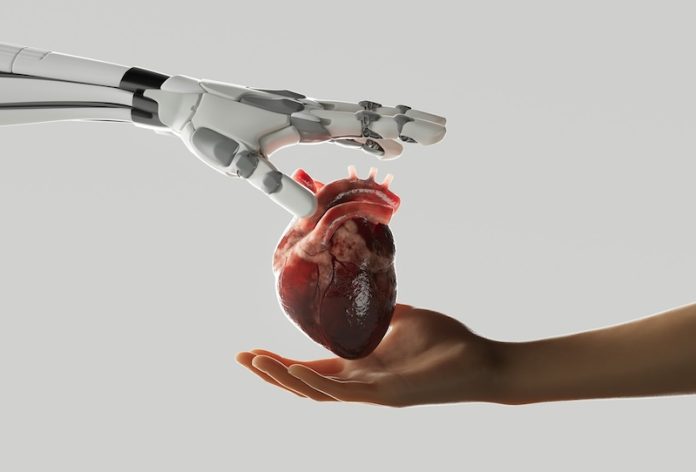
Researchers at Imperial College London and elsewhere have developed a new heart valve replacement therapy, potentially revolutionizing the treatment of faulty heart valves.
Published in Communications Biology, their study introduces a new method that harnesses the body’s natural repair mechanisms to grow living heart valves.
For over six decades, heart valve replacement has been a critical but imperfect solution for patients with heart valve defects. Mechanical valves, while durable, require lifelong medication to prevent blood clotting.
Biological valves, made from animal tissue, have a limited lifespan of 10 to 15 years and pose significant challenges, especially for children with congenital heart defects who outgrow these valves.
The new technique offers a groundbreaking alternative. Dr. Yuan-Tsan Tseng, a biomaterials scientist, explains that their goal is to create a living valve within the body that can grow with the patient.
This method involves implanting a nanofibrous polymeric valve scaffold made from biodegradable material.
Once inside the body, this scaffold attracts and guides cells to develop new tissue, effectively turning the body into a bioreactor for growing new heart valve tissue.
The key innovation lies in the scaffold material, designed to attract and house patient-derived cells, facilitating tissue generation and maintaining valve function. As the scaffold degrades, it is replaced by the patient’s own tissues.
The study outlines the design and manufacturing of the valve, laboratory validation, and initial animal tests. In trials involving sheep, the valves functioned well for up to six months, showing good cellular regeneration.
The scaffold attracted blood stream cells that underwent endothelial-to-mesenchymal transformation (EndMT), leading to the growth of nerves and fatty tissues akin to a normal valve.
The study confirms the viability of in-vivo regeneration, a new concept in heart valve therapy.
While further research is needed to fully understand the processes involved in polymer degradation and tissue regeneration, the initial results are promising.
This innovative approach could pave the way for more effective and adaptive treatments for patients with heart valve defects, offering a living, growing solution in place of traditional mechanical or biological replacements.
If you care about heart disease, please read studies that herbal supplements could harm your heart rhythm, and how eating eggs can help reduce heart disease risk.
For more information about heart health, please see recent studies that apple juice could benefit your heart health, and results showing yogurt may help lower the death risks in heart disease.
The research findings can be found in Communications Biology.
Copyright © 2024 Knowridge Science Report. All rights reserved.



